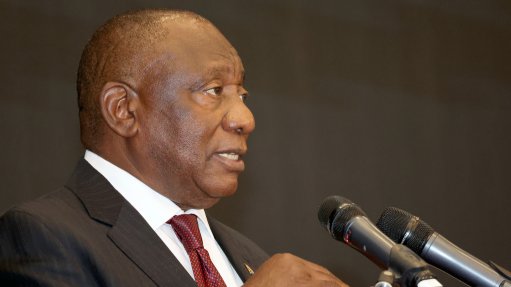Approbate or reprobate Local Content is key to SA’s industrialization
This article has been supplied.
Afrikaner nationalists resorted to affirmative procurement during the National Party regime, Bongani Mankewu writes.
South Africa's transformation and industrial policy are expected to be based on broad-based economic empowerment (B-BBEE) and local content. Whether a company is doing business with the government, a state-owned enterprise, or the private sector, B-BBEE is a vital transformational tool.
A cooperative and progressive approach to national logistics is necessary for a sustainable and equitable economy. The current economic conditions support the claim that the difficult economic crisis is a consequence of government control and the dominance of State-Owned Entities in the logistics sector. The Government of the National Unity (GNU) and organized business will likely favor privatizing the logistics system since private sector participation is traditionally associated with efficiency and good governance.
Nonetheless, global industrialization has been demonstrated to be entirely achievable under state supervision. South Africa has a moral obligation within the Private Sector Participation process to achieve industrialization that can sustain an economy capable of generating the necessary jobs to eliminate persistent disparities. As a result, the two identified transformation instruments - BBBEE and Local Content - must be unequivocally integrated into the Private Sector Participation reform process.
Japanese industrialization is credited to the Meiji Restoration, which enabled Japan to evolve into a modern industrial nation-state capable of competing with European nations in terms of military and economic power.
Singapore's state-owned enterprises (SOEs) have been managed successfully since independence in the 1960s while closely related to governmental economic objectives. This 'commercially viable strategic alignment', which is largely lacking in SOEs elsewhere, has supported cautious privatization, resulting in the preservation of a robust SOE sector.
Strategic alignment is demonstrated by Temasek, the SOE-holding company that turned into an investment fund, and its role in advancing entrepreneurship and venture capital, two government priorities.
After the National Party’s 1948 election win, Afrikaner nationalists turned to affirmative procurement, targeted state contracts, and employment creation in the parastatals. This is how a significant portion of Afrikaner wealth was created, and it is what altered the Afrikaner community.
To achieve industrialization that creates jobs and eliminates disparities, South Africa must carefully navigate historical industrial regimes from other countries, including Apartheid.
Private sector participation frequently includes a variety of financing models, such as optimal financing, which combines the sources of funding with the Nexus of suppliers.
It is the recipients of finance who develop engineering workshops in the countries where funds are sourced as a way to boost their industrialization. According to President Franklin D. Roosevelt, "The freedom to move capital in and out of a country at will is a freedom that some exercise, at enormous cost to others.”
Regardless of whether you approbate or reprobate the transformation and industrial policies in South Africa, which utilize the two instruments – BBBEE and Local Content- must be adhered to. It has been proven throughout history that industrialization has been successful in major economies around the world where the state has assumed the responsibility of supervision.
It would be a generational mistake to allow the Private Sector Participation process to undermine South Africa's moral revolutionary program aimed to be achieved through BBBEE and Local Content.
Mankewu is the Director of the InfraFIN Advisory Institute
Article Enquiry
Email Article
Save Article
Feedback
To advertise email advertising@creamermedia.co.za or click here
Press Office
Announcements
What's On
Subscribe to improve your user experience...
Option 1 (equivalent of R125 a month):
Receive a weekly copy of Creamer Media's Engineering News & Mining Weekly magazine
(print copy for those in South Africa and e-magazine for those outside of South Africa)
Receive daily email newsletters
Access to full search results
Access archive of magazine back copies
Access to Projects in Progress
Access to ONE Research Report of your choice in PDF format
Option 2 (equivalent of R375 a month):
All benefits from Option 1
PLUS
Access to Creamer Media's Research Channel Africa for ALL Research Reports, in PDF format, on various industrial and mining sectors
including Electricity; Water; Energy Transition; Hydrogen; Roads, Rail and Ports; Coal; Gold; Platinum; Battery Metals; etc.
Already a subscriber?
Forgotten your password?
Receive weekly copy of Creamer Media's Engineering News & Mining Weekly magazine (print copy for those in South Africa and e-magazine for those outside of South Africa)
➕
Recieve daily email newsletters
➕
Access to full search results
➕
Access archive of magazine back copies
➕
Access to Projects in Progress
➕
Access to ONE Research Report of your choice in PDF format
RESEARCH CHANNEL AFRICA
R4500 (equivalent of R375 a month)
SUBSCRIBEAll benefits from Option 1
➕
Access to Creamer Media's Research Channel Africa for ALL Research Reports on various industrial and mining sectors, in PDF format, including on:
Electricity
➕
Water
➕
Energy Transition
➕
Hydrogen
➕
Roads, Rail and Ports
➕
Coal
➕
Gold
➕
Platinum
➕
Battery Metals
➕
etc.
Receive all benefits from Option 1 or Option 2 delivered to numerous people at your company
➕
Multiple User names and Passwords for simultaneous log-ins
➕
Intranet integration access to all in your organisation

















